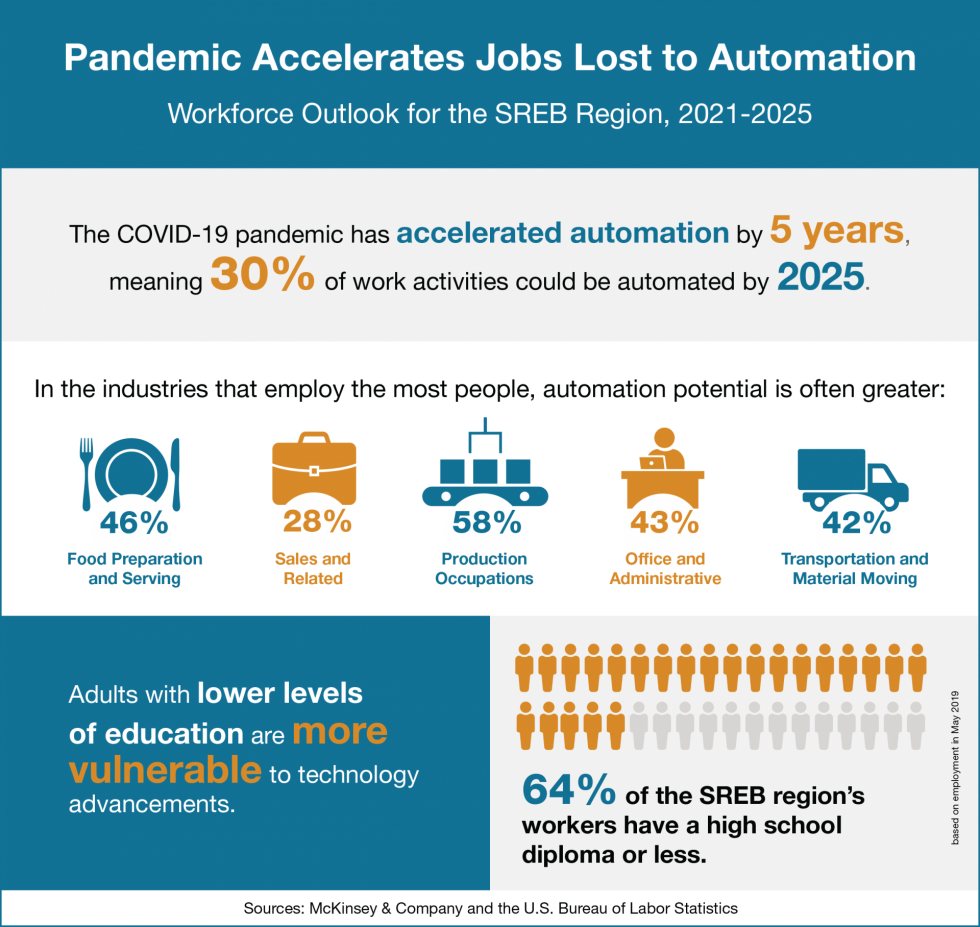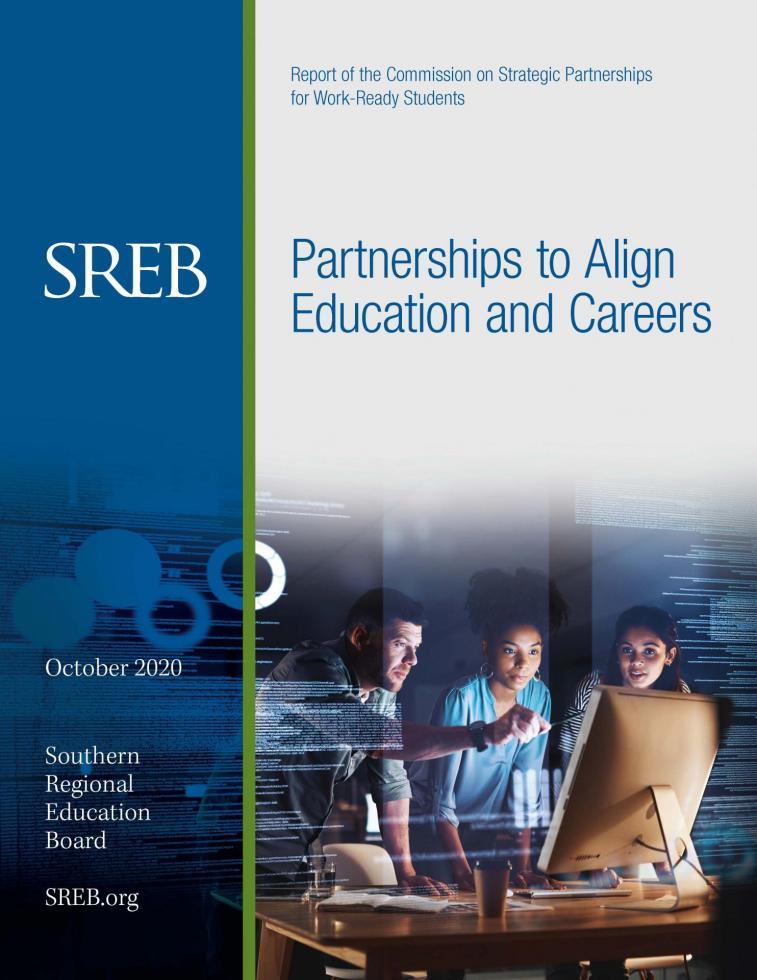Analysis: Millions need more education, training as COVID-19 tilts industries toward automation faster than expected
ATLANTA — About 18 million workers in the South
originally projected to become unemployable by 2030 now could
face that reality by 2025 as the COVID-19 crisis speeds up
employers’ reliance on automation, a new Southern Regional
Education Board analysis shows.
“This dangerous trend was already on the horizon, but COVID-19
makes it the next exit off the highway,” SREB President Stephen
L. Pruitt said.
Employers’ increasing shift toward automation and the
ongoing economic impact of the coronavirus create a dual threat
to the economic future of the South and nation, the analysis
shows. (See SREB’s new
report and 16 updated state-workforce data profiles.)
The pandemic creates enormous challenges, but the report explains
it’s also a time when states can update education, bolster a
resilient workforce, and develop policies that support healthy
families and thriving economies.
“By working together, leaders have an unprecedented opportunity
to work with educators and employers to make improving our
education and career-training systems our highest priority,”
Pruitt said. “If we do not rise to the challenge, the fallout
could be catastrophic.”
Who’s impacted the most: Adults with the lowest
levels of education are the most vulnerable to changes from
automation. About 64% of active workers in the 16 SREB states had
a high school diploma or less in 2019, and these workers form the
backbone of the workforce in many states, the report shows.
More than half of the nation’s workers out of work at the height
of COVID-19 unemployment in May had little or no chance to return
to their same jobs, according to the nonpartisan Economic Policy
Institute. SREB’s analysis of that data shows that about 5.5
million workers in the 16 SREB states face this situation.
Automation will make the greatest impact in the SREB region’s
largest job sectors. In all 16 SREB states, the food preparation,
sales, and office and administrative sectors are among the five
largest. Others include transportation (among the top five in 14
states), production (in 11 states), healthcare (four states) and
business operations (one state).
SREB estimates that 42% or more of work activities in food,
transportation, education, and office and administrative
occupations across the region could be automated by 2025. While
automation will likely transform more jobs than it eliminates,
many thousands of workers could lose their jobs as technology
advances.
“States must be swift and creative to meet the needs of an
unprepared workforce. Leaders’ decisions in the coming weeks and
months could help to support or hinder progress for years to
come,” said Meagan Crowe, a policy analyst at SREB and lead
author of the report.
Possible solutions: Over the past two years,
SREB has convened state leaders and educators to provide
resources and identify solutions to the workforce-education gap,
including:
- Retraining and upskilling adults: See SREB’s recent webinar series for state workforce and education leaders and policymakers on how states are making progress.
- Preparing younger students better for college and careers: See SREB’s state-by-state progress reports on long-term education trends.
- Bringing education and employers closer together: See SREB’s recent report on how these partnerships are critical to expanding career pathways and work-based learning for students.
Find these and other resources at SREB.org/Workforce. For more information and to reach our experts, contact SREB Communications.
Media Contact: Alan Richard, (404) 879-5528 or cell (202) 641-1300
A nonprofit, nonpartisan interstate compact, SREB was created in 1948 by Southern governors and legislators who recognized the link between education and economic vitality. SREB states are Alabama, Arkansas, Delaware, Florida, Georgia, Kentucky, Louisiana, Maryland, Mississippi, North Carolina, Oklahoma, South Carolina, Tennessee, Texas, Virginia and West Virginia. More at SREB.org.



